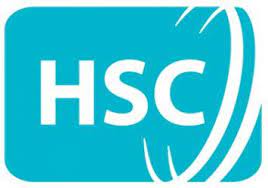Vaccinations
After clean water, vaccination is the most effective public health intervention in the world for saving lives and promoting good health, and therefore one of the most important things that any parent can do is get their child vaccinated and encourage them to continue this throughout their own lifetime.
Increase in Pertussis Cases in Northern Ireland
There has been a sharp increase in laboratory confirmed pertussis cases in Northern Ireland and other parts of the UK during the last two months. Since the end of January 2024 to start of March 2024, there were 71 laboratory-confirmed cases, of which 21 were in week commencing 4th March 24.
Children and pregnant women
In Northern Ireland, a primary course (3 doses) of pertussis containing vaccine is offered to all infants at 8, 12 and 16 weeks of age, with a booster at 3 years and 4 months. Children up to 10 years of age should still complete their course of pertussis primary and booster vaccination, but after recovery from any acute illness.
The maternal pertussis immunisation programme gives high vaccine effectiveness against pertussis in infants until their first vaccinations at eight weeks of old. It is offered to all pregnant women and should be administered at any stage after 16 weeks of pregnancy (and ideally following the detailed ultrasound scan).
Pertusis Vaccination
Pregnant women are reminded to get the whooping cough vaccine. The PHA is reminding pregnant women to get the whooping cough (pertussis) vaccine between 16 and 32 weeks of their pregnancy.
In 2019 in Northern Ireland 205 cases of confirmed whooping cough were reported to the PHA. During this time, when social distancing measures were in place, the number of cases declined, but now that we are mixing more frequently there is the risk that cases of whooping cough could rise again.
The majority of children who are reported as having whooping cough are infants under six months of age and so are too young to be protected by their routine childhood immunisations which are given at two, three, and four months of age. They can however be protected by their mother receiving the vaccination during pregnancy.
**NEW: Respiratory Syncytial Virus (RSV) Vaccination Programme**
RSV is a common respiratory virus that that can cause serious lung infections. While RSV infection can occur at any age, the risk and severity of RSV and its complications are increased in older adults and in neonates and small babies, and it has a considerable impact on individuals and NHS services during the winter months. The peak for RSV infections is November to February
The Joint Committee on Vaccination and Immunisation (JCVI) has recommended respiratory syncytial virus (RSV) vaccination programmes for older adults and during pregnancy for infant protection.
GP VACCINATION PROGRAMME
- All adults turning 75 years old on or after 1 September 2024 will be eligible for the routine programme and are offered a single dose of the RSV vaccine on or after their 75th birthday. Please book an appointment on line or via reception from mid August 24. Clinics will start at the beginning of September.
This will be a year-round programme with individuals becoming eligible once they have their 75th birthday.
In line with JCVI guidance, individuals will remain eligible until the day before their 80th birthday. - A one-off catch-up campaign for those already aged 75 to 79 years old on 1 September 2024 will be undertaken from the start of September 24. Eligible individuals in this cohort will remain eligible until the day before their 80th birthday.
People turning 80 in the first year of the programme will have until 31 August 2025 to get vaccinated.
- All adults turning 75 years old on or after 1 September 2024 will be eligible for the routine programme and are offered a single dose of the RSV vaccine on or after their 75th birthday. Please book an appointment on line or via reception from mid August 24. Clinics will start at the beginning of September.
Seasonal Flu Vaccination
Influenza – flu – is a highly infectious and potentially serious illness caused by influenza viruses. Each year the make-up of the seasonal flu vaccine is designed to protect against the influenza viruses that the World Healflujabsth Organization decide are most likely to be circulating in the coming winter.
Regular immunisation (vaccination) is given free of charge to the following at-risk people, to protect them from seasonal flu:
- people aged 65 or over
- people with a serious medical condition
- people living in a residential or nursing home
- the main carers for an elderly or disabled person whose welfare may be at risk if the carer becomes ill
- healthcare or social care professionals directly involved in patient care
- those who work in close contact with poultry, such as chickens.
Pregnant women & the Flu Vaccination
It is recommended that all pregnant women should have the flu vaccine, whatever stage of pregnancy they’re in. This is because there is good evidence that pregnant women have an increased risk of developing complications if they get flu, particularly from the H1N1 strain.
Studies have shown that the flu vaccine can be safely and effectively given during any trimester of pregnancy. The vaccine does not carry risks for either the mother or baby. In fact, studies have shown that mothers who have had the vaccine while pregnant pass some protection to their babies, which lasts for the first few months of their lives.
Criteria to be able to book an appointment online or via reception to receive the Shingles Vaccination from September 2024
Immunocompetent individuals who:
- are aged 65 or 70 years on 1 September 2024
- are aged 66 years on 1 September 2024 and have never received a shingles vaccine
- are aged between 71 years and 79 years, and have never received a shingles vaccine and Zostavax® is no longer available
- are currently aged 80 years or over, but received a first dose of Shingrix® before turning 80 years old and require a second Shingrix® dose to complete the course before their 81st birthday
Severely immunosuppressed [1] individuals from 1 September 2024, who:
- are aged 50 years and above, and meet the definition of severe immunosuppression.
- are aged between 18 and 49 years and receiving a stem cell transplant
Exclusion: Individuals who do not meet the criteria
Immunocompetent individuals on 1 September 2024 who:
- have not yet reached their 65th birthday
- are between 67 to 69 years of age
- are 80 years of age or over, except those who have received a partial course of Shingrix® (who are no longer eligible from their 81st birthday)
All individuals who:
- have had a confirmed anaphylactic reaction to a previous dose of varicella vaccine or to any component of the vaccine
- are suffering from acute severe febrile illness (the presence of a minor infection is not a contraindication for immunisation)
- have shingles infection with active lesions
- are pregnant
- have already received one dose of Zostavax® or two doses of Shingrix® prior to assessment
- have received a dose of Shingrix® in the last 8 weeks
[1] Immunocompromised individuals in this PGD, are those defined as severely immunosuppressed, as outlined in the Box in Chapter 28a
Shingles Vac schedule for phased implementation of programme from 1 Sept 23 to 31 Aug 28 – click below ⇓:
Pneumococcal Vaccination
Pneumococcal Vaccination is available to anyone in a clinical risk group and to anyone over 65 years. Any vaccination appointments can be booked via our Practice Reception Team.
For more information go to the Public Health Agency website.
Pertusis Vaccination
Pregnant women are reminded to get the whooping cough vaccine.
The PHA is reminding pregnant women to get the whooping cough (pertussis) vaccine between 16 and 32 weeks of their pregnancy.
In 2019 in Northern Ireland 205 cases of confirmed whooping cough were reported to the PHA. During this time, when social distancing measures were in place, the number of cases declined, but now that we are mixing more frequently there is the risk that cases of whooping cough could rise again.
The majority of children who are reported as having whooping cough are infants under six months of age and so are too young to be protected by their routine childhood immunisations which are given at two, three, and four months of age. They can however be protected by their mother receiving the vaccination during pregnancy.
Book through our reception staff.

